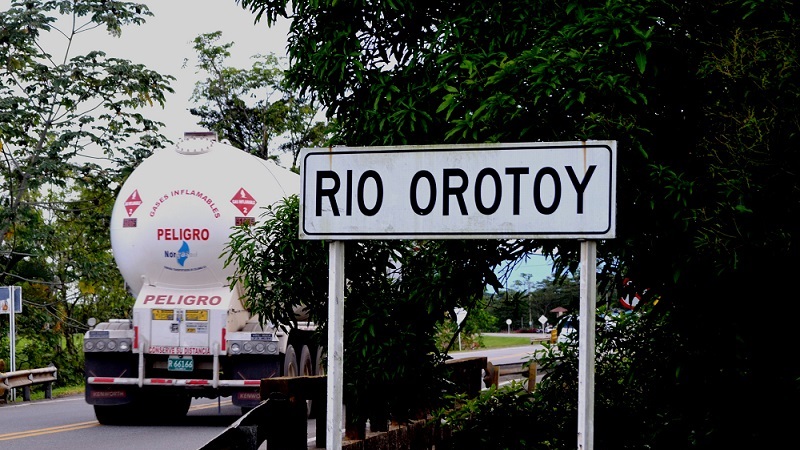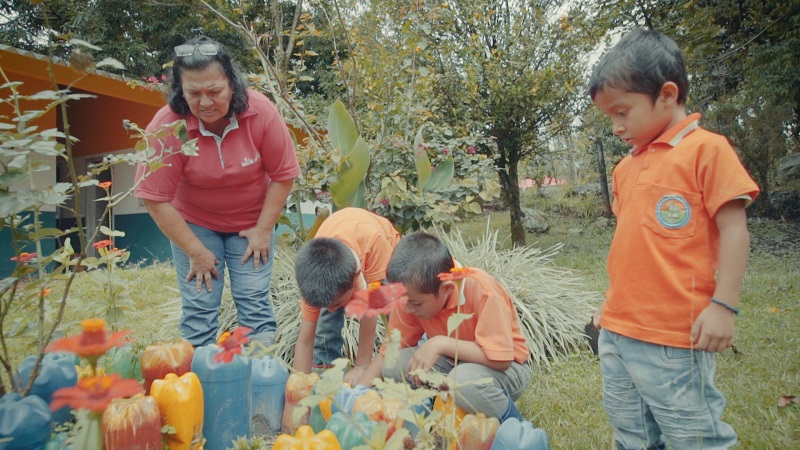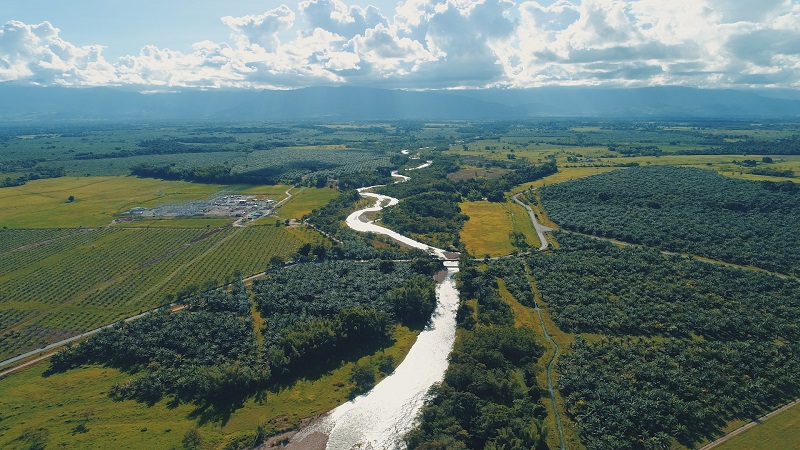The case of the Orotoy river basin (Colombia)
The Orotoy River Basin, located in the department of Meta (Colombia), has 188 Km2 approx., about 5000 inhabitants and is currently a highly transformed land, vulnerable to global environmental change. This territory is a disjoint example of the general problems that affect the Colombian Orinoco, a region where conditions such as of ecosystem fragility associated with land use transformation, high demand for water resources, socially vulnerable population and weak water governance systems lead to environmental conflicts.

In order to strengthen the adaptive capacities of local communities that inhabit the river Orotoy basin to the climate change, associated with water governance and landscape management, we used the Integral valuation of biodiversity and ecosystem services approach, proposed by the Humboldt institute (Colombia). For it, we did a (1) characterization of the socio – ecological dynamics that have shaped the landscape, (2) an analysis of possible landscape management scenarios that converges in a proposal of strategic guidelines for water governance and (3) activities for promoting knowledge sharing and education, focused on local, sectoral and governmental representatives.
The main elements that influence the adaptive capacity of local communities are associated to access to basic public services, communications, and infrastructure or production goods, especially in the upper part of the basin, where the greatest climate change impacts are projected. Another relevant element in the extremely low values of financial capital which includes the impossibility of accessing to loans and low saving capacity. This information leaded us to propose a land management strategy for climate change adaptation and water governance, discussed and appropriated by local stakeholders.

On this project we promoted dialogue between conflictive stakeholders about landscape management, climate change adaptation and water governance. We also identified common interest or conflict between stakeholders. We conclude that knowledge is the key to transform environmental conflicts, since it is a tool that allows to reduce the uncertainty and the risks of the decisions that are taken on a territory. This information can be used to create mechanisms that allow an equitable distribution of ecosystem services and to promote environmental justice.
More information about this project will be presented at the ESP9 conference to be held in China from 11 to 15 December 2017, as the presentation entitled “Linking wellbeing priorities at the local scale and ecosystem services” (T7 session “The role of social sciences in the ecosystem services valuation”). The poster entitled “Projecting changes on water ecosystems services under climate change: the case of the Orotoy river basin (Colombia)” is presented as well.

